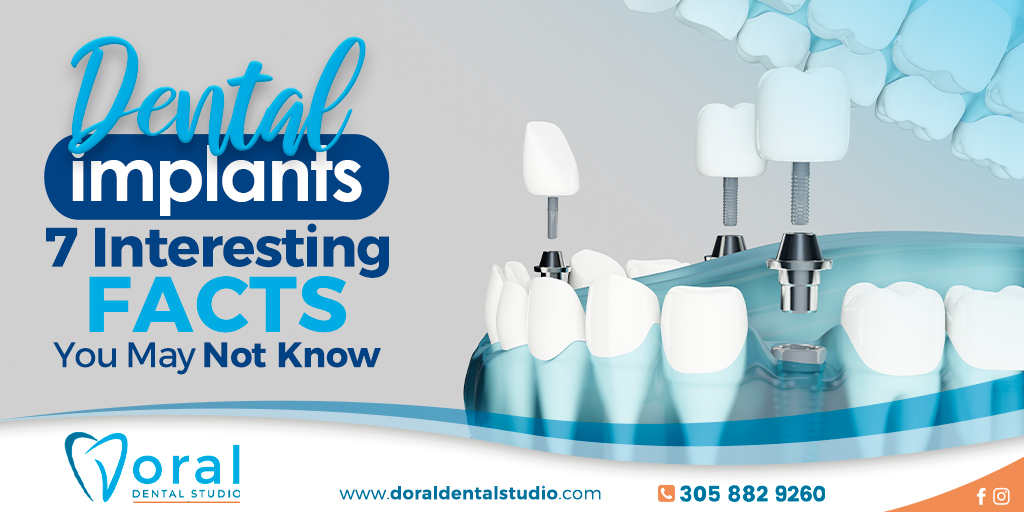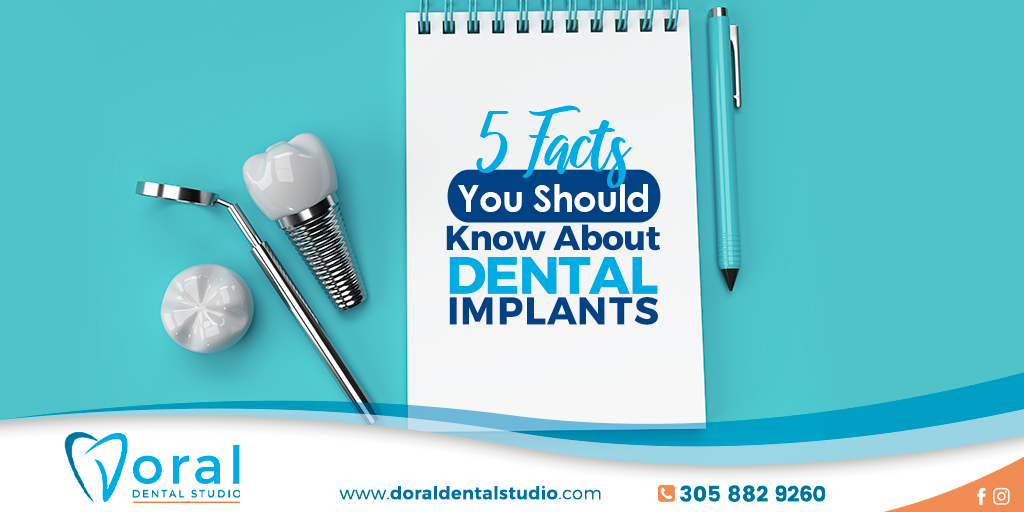Getting dental implants can seem a little scary, after all, it’s not something that you’ve experienced before. That’s why finding out more about how dental implants are done, what dental implants cost, and learning some interesting facts along the way, can make you feel more informed and relaxed.
Naturally, your dentist will be more than happy to talk to you more about your specific situation and what you can expect during the dental implant procedure, but for now, enjoy these interesting facts and learn more about dental implants.
1.Goodbye Cavities
Unlike natural teeth, implants don’t decay and it’s impossible to get a cavity. That’s not to say you can stop brushing and flossing your teeth. It’s still important to maintain good oral hygiene as food particles and bacteria need to be brushed away to keep gums healthy. Gum disease is the number one enemy of implants and is the main reason for implant failure.
2.Dental implants date back to 2000 BC
Most of us regard implants as a relatively new procedure but early versions of tooth implants were used in ancient China as early as 2000 BC. At this time carved bamboo pegs were used to replace missing teeth.
A Celtic grave uncovered in France by archaeological excavations found a false tooth made from iron which is thought to have originated from 300 BC approximately. That said, experts think that this was probably hammered into the jaw post mortem for aesthetic reasons because it would have been excruciating to install it during life.
Dental implants as we know them were first placed in 1965 into the jaw of a human volunteer by an orthopaedic surgeon named Branemark. These implants were still going strong when the patient died some 40 years later.
3.An implant uses space-age material
Implants are made from titanium – that’s the same material that is used on spaceship engines. Yep, your implants will be as strong as rockets which go to Mars and beyond. This expensive metal is one of the reasons dental implants cost as much as they do.
Speaking of dental implants cost, while they may appear initially expensive, they have the potential to last many years. Conversely dentures and bridges need replacing every 5-10 years on average. So in reality, implants are a very cost-effective method of tooth replacement.
4.Dental implants are artificial tooth roots
There is a common misconception that implants are the same as dental crowns. In fact, if you’re not sure how dental implants are done, then you may not know that implants consist of 3 parts – the post, an abutment and a dental crown.
The first stage of the dental implants procedure is for the titanium post to be surgically implanted into the jaw. This is left to fuse with the surrounding bone to become a permanent fixture in the mouth.
It then acts as an artificial tooth root and continues to stimulate the jaw bone thus preventing the body from resorbing the bone (in a natural process that usually occurs when a tooth is missing). Because of this, the jaw is strengthened, and a person retains their facial structures.
Once fusion (osseointegration) has taken place and the implant is stable, another short spell of surgery is required to uncover the implant and place the abutment on top. This tiny component holds the dental crown in place and also acts as a shock absorber withstanding the pressures that are applied when eating.
Once healing has taken place, a custom porcelain crown is cemented onto the abutment to complete the restoration and voila, your smile is transformed. So now you know how dental implants are done, let’s talk about another interesting fact…
5.You’re never too old to get a dental implant
Yes, that’s right, there are no age restrictions for dental implants, although the jaw does need to be fully developed. This means that a patient usually needs to be over the age of 17. Provided your mouth is healthy and your oral surgeon considers that you’re sufficiently healthy, then even if you’re in your 90s you can be considered for a dental implant. Even if you have suffered from bone loss, it’s possible for a patient to have a bone graft to replenish the bone supply, enabling them to get a dental implant some months later.
6.No-one will know
Here at Doral Dental Studio, we’re happy to answer patient’s concerns about dental implants, particularly whether or not they look natural. Every implant-supported restoration is custom-designed by our experienced cosmetic dentists and carefully crafted in a dental laboratory. Regardless of whether you have a single implant, an implant-retained bridge, or a complete denture, the results look so natural that family and friends will be hard pushed to tell the difference between your natural teeth and your implants when you smile.
7.Dental implants are good neighbours
Tooth implants act just like your natural teeth. This means you don’t need to worry about them harming neighbouring teeth. Furthermore, unlike dental bridges, there’s no need for other healthy teeth to be altered in size or shape when your dentist is preparing the area for implants. Filling missing gaps with dental implants also prevents other teeth from moving and makes it easier for you to brush and floss your teeth.
Are you ready to schedule a consultation?
Are you ready to smile with confidence, laugh freely, and eat just what you want? If so, dental implants may be just the solution to finally restoring your smile by filling in those unsightly gaps left behind by tooth loss. To learn more about the dental implant procedure and whether you’re a suitable candidate, why not contact Doral Dental Studio and schedule a consultation? You can call us on (305) 882-9260 or book online.




